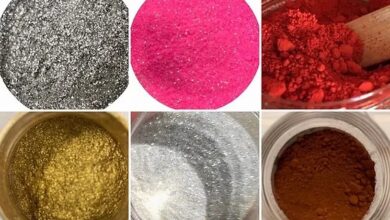Choosing the Perfect Color Palette for Your Office: Tips for Productivity and Aesthetics

When designing or refreshing an office space, choosing the right color palette can have a lasting impact on both the aesthetics of the space and the productivity of the employees. Colors play a powerful role in shaping the atmosphere, influencing moods, and even affecting work efficiency. Whether you’re updating a corporate office, creative studio, or medical practice, it’s essential to consider how color choices can impact those who spend hours in the space every day.
In this article, we’ll explore how to pick the perfect office color scheme, balancing productivity, aesthetics, and professionalism while using expert painting services to bring your vision to life.
The Psychology of Color in Office Spaces
Before diving into specific color recommendations, it’s important to understand the psychology behind colors and how they affect people differently. Colors can trigger a range of emotions and behaviors, which makes them a powerful tool for creating an office environment that fosters focus, creativity, and comfort.
1. Warm Colors for Energy and Creativity
If you’re looking to inject energy and creativity into your workspace, warm colors like red, yellow, and orange are known for their stimulating effects. They encourage active thinking, collaboration, and innovation.
- Red: Often associated with passion and energy, red can help boost adrenaline and excitement, making it ideal for brainstorming rooms or creative workspaces. However, too much red can be overwhelming, so it’s best to use it as an accent.
- Yellow: Bright and cheerful, yellow is linked to optimism and creativity. It works well in offices where brainstorming and creative thinking are important. A soft, pastel yellow can uplift the mood without being too distracting.
- Orange: Orange combines the energy of red and the happiness of yellow, making it an excellent choice for collaborative areas or shared spaces. It can inspire enthusiasm and promote sociability.
2. Cool Colors for Calm and Focus
Cool colors like blue, green, and violet have a calming effect, which can help employees concentrate and stay focused for long periods. These colors are perfect for quiet work environments or medical offices where patients and staff may benefit from a sense of calm.
- Blue: Known for its calming properties, blue enhances focus and clarity. It’s often used in professional settings to promote productivity, making it ideal for conference rooms or offices where attention to detail is critical.
- Green: Representing balance and renewal, green is easy on the eyes and helps reduce eye strain from screen time. Green works well in home offices, creative studios, and medical practices where a tranquil environment is beneficial.
- Violet: A softer, more luxurious option, violet can promote creativity while maintaining a calm and relaxed atmosphere. It’s a versatile color that works in both corporate and creative settings.
Tailoring Color Choices to Office Functions
Not all areas of the office serve the same purpose, and different rooms can benefit from varied color schemes to enhance their specific function. Let’s take a closer look at how you can use color to optimize each part of your workspace.
1. Reception Areas: First Impressions Matter
The reception area is often the first point of contact for visitors, so it’s crucial to set the right tone with your color choices. A welcoming, professional atmosphere can be created through the use of neutral tones and soft accent colors.
- Neutrals: Colors like beige, grey, and soft white offer a clean, sophisticated look while maintaining versatility. They create a polished, professional appearance without being overwhelming.
- Accent Colors: Adding a pop of color through accent walls or furniture can make the reception feel more dynamic and engaging. A subtle accent like a muted blue or warm taupe can add warmth without sacrificing professionalism.
2. Collaborative Spaces and Break Rooms: Fostering Interaction
Collaboration rooms and break areas are meant to inspire creativity and foster interaction among employees. Bright, energetic colors can help energize these spaces, making them more conducive to collaboration and socialization.
- Bright Colors: As mentioned earlier, colors like yellow and orange can promote enthusiasm and optimism, making them perfect for spaces where teamwork and creativity flourish.
- Mid-Tones: For a more balanced approach, mid-tones like soft green or light teal can create a welcoming space that encourages both relaxation and interaction.
3. Individual Offices: Focus and Privacy
For individual offices where employees need to focus on tasks, cooler and more muted tones can help create a peaceful environment that encourages concentration. Avoid bold, highly saturated colors in these spaces, as they can become distracting over time.
- Subtle Blues and Greys: These colors foster focus and reduce visual clutter, helping employees maintain a calm and productive environment. They also work well for medical offices, where patients might benefit from a relaxing atmosphere.
Color Coordination and Branding
Incorporating your company’s branding into the office’s color scheme is another key consideration when selecting a palette. If your brand has specific colors associated with its identity, integrating these into the workspace can help strengthen the brand’s presence and create a cohesive look.
1. Aligning Brand Colors with Office Design
If your brand uses bold colors like red or blue, incorporating these hues into your office space can tie the aesthetic back to your brand identity. However, you don’t need to overdo it—subtle touches like accent walls, furniture, or branded artwork can make an impact without overwhelming the design.
2. Using Neutral Backdrops with Brand Accents
For businesses with more vibrant logos or color schemes, it may be best to use neutral tones as the primary backdrop and reserve brighter brand colors for specific design elements. For instance, R&J Painting Chicago can help create accent walls, painted doors, or branded conference rooms that reflect your company’s style without dominating the space.
Tips for Balancing Aesthetics and Practicality
Selecting colors isn’t just about aesthetics; it’s also important to consider the practical aspects of maintaining a professional and clean office space. Certain colors and finishes are easier to maintain and can withstand the daily wear and tear of an active office.
1. Durable Finishes for High-Traffic Areas
For high-traffic areas like hallways, break rooms, and conference rooms, choose semi-gloss or satin finishes. These finishes are not only easy to clean but also resistant to scuffs, stains, and fingerprints. The slight sheen also adds a polished look to the walls, maintaining a fresh appearance even after years of use.
2. Matte Finishes for Calm Spaces
In quieter areas like private offices or meeting rooms, matte finishes offer a sophisticated, non-reflective look that enhances focus and reduces distractions. While matte finishes are more prone to showing marks, they create a smooth, understated look that is ideal for spaces meant to encourage concentration and privacy.
Getting Professional Help
While selecting the right colors for your office can be a fun and creative process, it’s also a significant investment. Working with experienced painting services ensures that your office receives a professional-quality paint job that lasts, whether you’re refreshing an old space or designing a new one.
R&J Painting specializes in helping businesses find the right balance between aesthetics, functionality, and brand identity through expert color consultation and application. By partnering with professionals, you can ensure that your office space reflects the company’s values and provides a productive, welcoming environment for employees and visitors alike.
Conclusion: Choosing Colors That Work for Your Office
The colors you choose for your office space have a direct impact on mood, productivity, and how your brand is perceived by both employees and clients. Whether you opt for vibrant, energizing hues or calming, neutral tones, the goal is to create an environment that aligns with your company’s mission and enhances the overall workspace experience.
By carefully considering the function of each space, the impact of color psychology, and the practical aspects of maintaining the space, you can select a palette that promotes both productivity and aesthetics. Professional painting services like those offered by R&J Painting can help you achieve these goals, ensuring a flawless finish and a space that your team will love.



